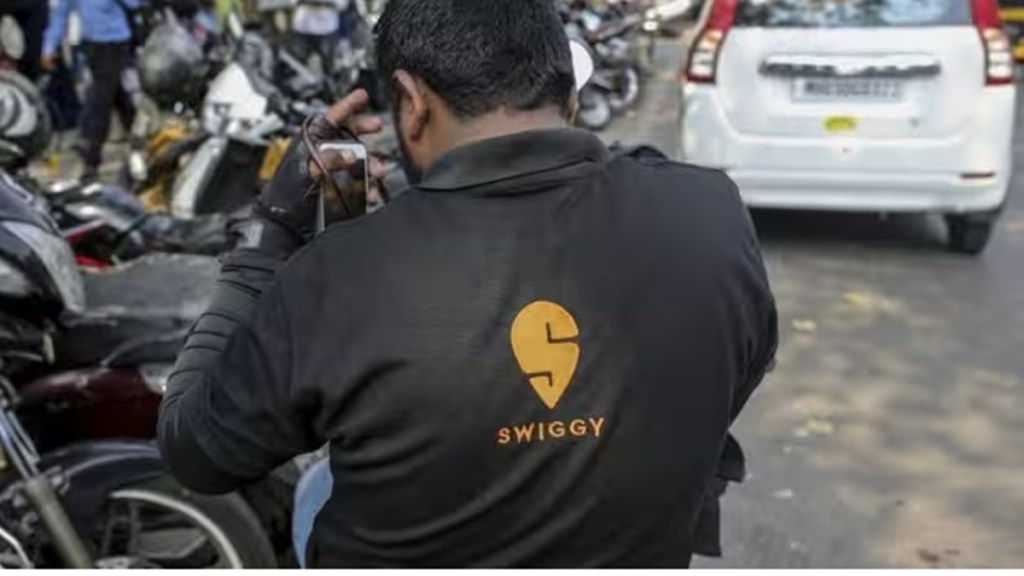Delivery executives associated with Swiggy in Mumbai called off the city-wide strike on Tuesday afternoon, which they had announced over the weekend, after the platform’s executives held a meeting with Rashtriya Karmchari Sena (RKS), a workers’ union that initiated the protest with the backing of over 10,000 registered delivery workers.
The meeting, held between protesting workers and senior executives from Swiggy in coordination with Maharashtra Chief Minister Eknath Shinde and RKS president Kiran Kiran Pavaskar, resulted in the platform agreeing to the two main demands set forward. These demands included rolling back the extended radius and increasing the base delivery fee for delivery workers.
Protesting workers had cited reduced payouts, diminished incentives, and an increase in the delivery radius introduced by the platform in recent days as the main reasons for the protest.
The platform has, since last month, increased the base delivery radius from 4.5 km to 6 km, while the payout for the same remained at Rs 20. Protesting workers argued that this significantly increased their workload and travel distances while earnings took a hit.
Protesting workers also complained that their Swiggy login credentials were being blocked when they refused to take orders in light of the protest.
Swiggy has now agreed to roll back the extended delivery radius for delivery workers from 4.5 km to 6 km, while the base delivery fee has also been revised to Rs 40 within the minimum radius. It has also agreed to reactivate accounts of protesting workers.
Meanwhile, another meeting between Swiggy executives and the workers’ outfit has been scheduled for Saturday, October 14, where further issues regarding the working conditions and well-being of delivery workers will be discussed. The agenda will include difficulties in receiving accident protection and insurance covers on rides undertaken, said Kiran Pavaskar, president of Rashtriya Karmchari Sena.
Swiggy did not respond to a request for comments.
However, the platform cited operational limitations and the unavailability of riders as several users across the city complained about delivery delays over the past three days. Areas like Bandra, Dadar, and South Mumbai were heavily impacted with complete unserviceability until the strike was called off.
Over the three days of the protest, a 10% drop was witnessed in the overall number of online food orders in the city.
Cloud kitchens, which rely heavily on food delivery platforms like Swiggy and Zomato, could potentially have had 10% of their monthly revenue wiped out, equivalent to the average profit earned throughout the month, due to the strike, according to industry analysts.
“With the ongoing strike with riders on aggregator platforms mainly speaking of Swiggy, dynamics in terms of order split shifted with Zomato growing at almost over 20% over the weekend. Users switched to direct ordering and to Zomato. We did also see a slight increase in takeaways. At Hundo, we communicated the same to our customers via various digital platforms to reduce inconvenience and to maintain efficiency and customer brand experience despite situations around. We also increased our in-house fleet to overcome demand,” said Kabir Moorjani, co-founder, Hundo Pizza, a Mumbai-based cloud kitchen that operates outlets in Bandra, Oshiwara, Marine Drive and Powai.
“Delivery workers come under the bracket or consultants or gig workers and aren’t protected like full-time employees. Hence it’s is imperative that their voice is heard, and an amicable solution is arrived at without the loss of revenue or business for restraunts,” said Pranav Rungta, Mumbai chapter head, National Restaurant Association of India.
Swiggy and Zomato, have also recently introduced a platform fee that ranges between Rs 2-3 on all orders, in a bid to achieve profitability. Both platforms have also been marketing paid subscribtion models that offer free-deliveries, discounts, and rewards, aimed at retaining customers.
